Journaling is possibly one of the most simple but profound tools out there for enhancing your well-being on every level (mental, emotional, physical, and spiritual).
When it comes to self-growth and spiritual maturation, journaling is one of the top three practices I recommend to everyone, no matter how good that person is at writing or not.
Thankfully, you don’t have to be particularly good at writing to benefit from journaling. (In fact, you can be flat-out terrible!)

Soul Work Compass Course:
Feeling lost, stuck, and trapped in repetitive cycles of pain? Discover your Soul's Compass to reclaim your purpose and find your path to freedom.
⭐️⭐️⭐️⭐️⭐️ "I have been a long-time subscriber to their website, and it’s one of my favorites by far ... It is rare to find this type of teacher." – Shar B.
Not only that, but you don’t even have to worry about things like grammar or spelling – none of those fussy details matter at all.
What does matter is the attitude and intention you bring to journaling.
Are you interested in growing and learning more about yourself? Great! The desire to learn is the entire point of journaling.
Therefore, as long as you’re sincere about discovering more about yourself, you’ve already triumphed as a journaler!
When it comes to journaling, there’s nothing to master but your own ability to be self-aware.
But understandably, journaling doesn’t come naturally to everyone. So if you’re struggling to get motivated, I’ll share with you some of my best advice in this article.
Table of contents
What is Journaling?

Journaling is the practice of writing down your thoughts and feelings for the purposes of self-discovery, self-understanding, and self-reflection.
Want to get LonerWolf at the top of your Google search results?
As one of the oldest forms of self-help in the world, journaling is about exploring one’s own thoughts, feelings, memories, and hidden desires through the written word.
From Leonardo da Vinci and Marcus Aurelius to Marie Curie and Albert Einstein, journaling has been around for centuries. It is an age-old tried-and-tested method that has been used among thinkers, poets, philosophers, scientists, innovators, and artists – and still is.
In fact, journaling is so powerful that it’s often one of the first prescribed self-help methods by therapists, counselors, and even scientists.
So how can we summarize journaling in a nutshell?
Journaling is primarily about self-exploration: exploring who you are, what you think, how you feel, and the way in which you process life’s daily events.
As a byproduct of journaling, you’ll gain more clarity and insight about your mind and emotions, leading to heightened self-awareness, self-acceptance, self-love, and self-compassion.
The more self-aware a person is, the more well-adjusted, grounded and balanced they will feel, despite what is going on around them.
Therefore, journaling helps us to find inner stability and gives us the ability to untangle ourselves from self-destructive forms of behavior and negative thought patterns.
18 Benefits of Journaling
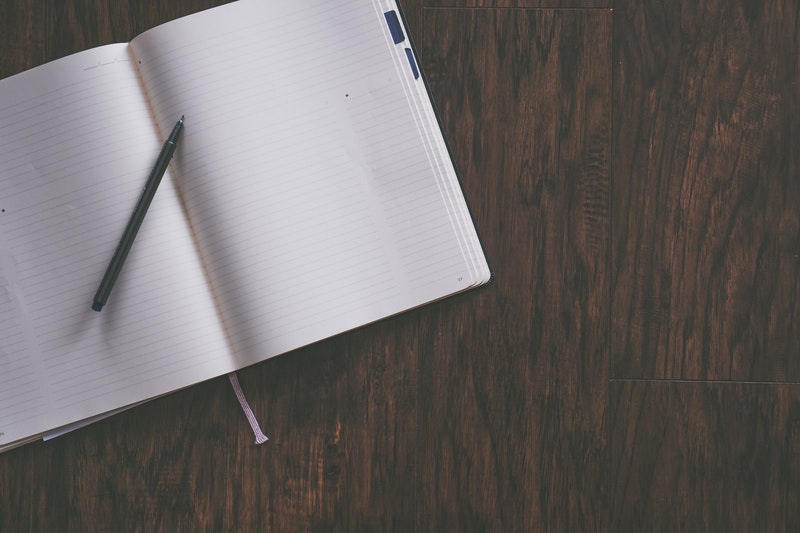
I don’t journal to ‘be productive.’ I don’t do it to find great ideas or to put down prose I can later publish. The pages aren’t intended for anyone but me. It’s the most cost-effective therapy I’ve ever found.
– Tim Ferriss
That is what journaling is about. It’s a break from the world. A framework for the day ahead. A coping mechanism for troubles of the hours just past. A revving up of your creative juices, for relaxing and clearing.
– Ryan Holiday
For something so simple, there are an amazing number of benefits linked to journaling. These benefits are both subjective (personally felt) and objective (scientifically proven).
Here’s are some of the many benefits:
Would you like to save this?
Your information will never be shared.
- Strengthens your immune system and leads to better physical health (source)
- Improves emotional intelligence (the ability to perceive and understand emotions)
- Soothes anxiety and increases feelings of calmness (source)
- Promotes individuation (the maturing of the self/identity)
- Enhances mental health (source)
- Helps you to deal better with depression (source)
- Encourages spiritual growth and integration
- Reduces symptoms related to panic, PTSD, and addiction
- Increased self-awareness, self-understanding, and self-compassion
- Improves your ability to communicate with others (source)
- Increases happiness (source)
- Promotes mental clarity and problem-solving skills
- Helps you to deal with stress and intrusive thoughts more effectively (source)
- Increases creativity
- Improves your work efficiency (source)
- Can help to improve your IQ (source)
- Speeds up emotional recovery after romantic breakups (source)
- Promotes emotional, mental, and physical healing
… and I’m sure there are many other benefits I haven’t mentioned here.
For something so basic, this list shows a stunning array of benefits that virtually anyone can receive! All we need to do is learn how to make journaling a daily practice (we’ll explore that soon).
Journaling As a Form of Soul Retrieval
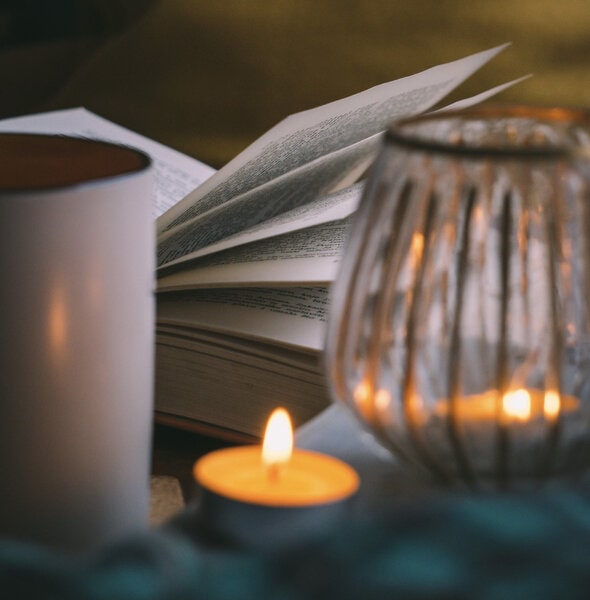
Journal writing is a voyage to the interior.
― Christina Baldwin
As you’ve just seen, journaling has a mind-boggling number of benefits. But perhaps deepest of all, journaling helps us to reconnect with what many call the Soul or Divine spark within us.
In fact, for many people, journaling is a core spiritual practice because it provides a gateway to deeper spiritual healing, sudden awakenings, and the integration of lost parts of ourselves. That’s why we even recommend keeping specifically a spiritual journal.
Above all, journaling helps us to feel more whole – something that seems so elusive in this day and age.
In other words, journaling is a powerful form of Soul Retrieval.
By quietening our thoughts and helping us to mindfully tune into our deeper selves, journaling reveals what’s hidden beneath the surface. We can retrieve access to our Souls by coming face to face with our demons, hidden gifts, buried dreams, and smothered desires.
For a more thorough look at journaling through a spiritual lens, see my article entitled “How to Journal: 19 Beginner Tips For Modern Mystics.”
My Experience With Journaling

Writing eases my suffering. Writing is my way of reaffirming my own existence.
– Gao Xingjian
My love affair with journaling started over twenty years ago. I think the first ever journal entry I wrote was about my goldfish who had died and how sad I was.
Being a sensitive introvert, recording my thoughts just seemed to come naturally to me as it allowed me to process what I was going through.
Journaling was also a private space to open my heart and share what I was too shy to tell others. In my teenage years, I journaled each and every day without fail, and it was a lifesaver.
Journaling was probably the number one thing that got me through all of the depression, fear, insecurity, and confusion of growing up – particularly during my process of spiritual awakening and the turmoil of separation from my family.
As I’ve matured, I now feel much more comfortable sharing my thoughts and feelings publically (through this website), but I do still record private thoughts and feelings nearly every day.
To me, journaling has been one of the most powerful instruments for mental, emotional, and spiritual growth I have ever used. Without this daily practice, I don’t think I would have ever learned half of what I know now.
Healthy vs. Unhealthy Journaling
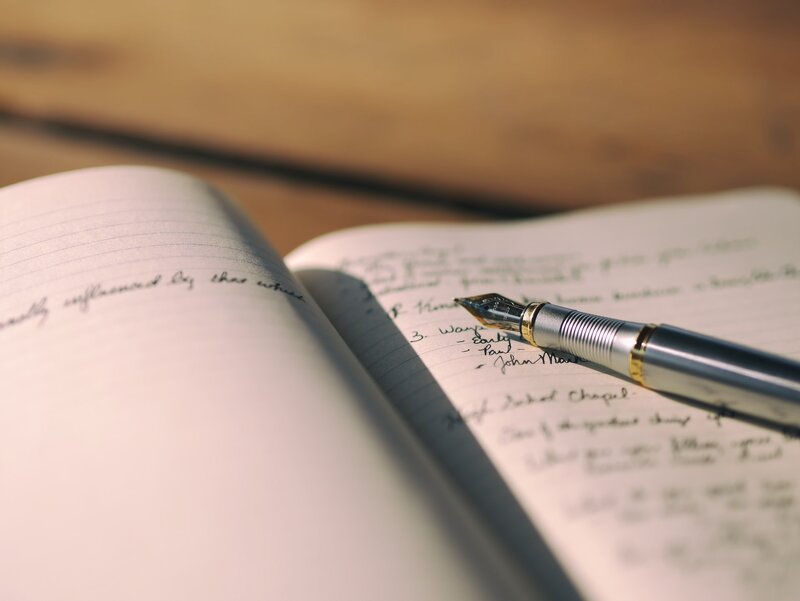
But journaling is not all sunshine and roses: it can be misused.
For example, when approached in the wrong way, journaling can lead to excessive self-absorption and wallowing in self-pity.
It’s important to take a structured and solution-oriented approach to recording your thoughts, otherwise, you could be doing more harm than good.
I have made the mistake of using journaling as a vehicle for blame and self-justification before, so be careful of using journaling solely for the purpose of ranting and raving without true self-analysis.
When approached in a healthy way, journaling can lead to decreased emotional reactivity, more mindfulness, tolerance, understanding, and ultimately improved relationships both with yourself and other people.
In this way, journaling helps you to let go of emotional and mental suffering and feel more inner peace. The direct and indirect benefits of journaling ripple into your life endlessly.
11 Ways to Start Journaling (General Advice For Everyone!)
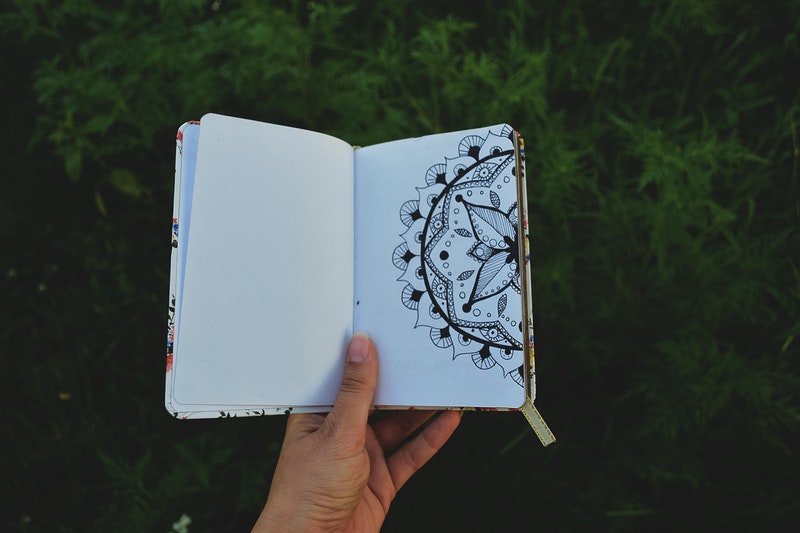
If you want to start journaling – or have tried in the past but never made a habit out of it – here are some of my best tips:
1. Don’t worry about the medium
Many people wonder whether paper diaries or digital diaries are better. My response is that none of them are superior: it all depends on the person.
If you like to chew over your thoughts and go slowly, writing in a traditional paper diary might be the best for you.
However, if you prefer the convenience of typing and if you like to move quickly with your thoughts, you might like to try online diary or note-taking apps such as Evernote, Microsoft OneNote, Penzu or another password secure website.
Try exploring both and see what you like better. (You can also keep both!)
2. Keep your journal private
Your journal should be for your eyes only – it isn’t to be shared on your Facebook page, Instagram account, Youtube channel, or other social media platform.
It shouldn’t even be shared with your friends, partner or family members.
Why?
The answer is that when we share thoughts and feelings with others, we tend to screen them for acceptability.
Your journal should be a place where you can write freely without the fear of judgment or scrutiny – this is why it’s better to keep it private.
No one is saying that you can’t share some of your private reflections verbally with others, but just try to keep what you have written to yourself.
You might also like to find a way of keeping your journal secure. You could use a password-protected website like Evernote or, if you are using a physical journal, get a lock and key (or hide it really well)!
The more confident you are that your thoughts will stay private, the easier it will be for you to write without inhibition.
3. Don’t bother with spelling, grammar, and punctuation

As a perfectionist, it took me many years to stop editing my journal entries for spelling errors and grammatical mistakes.
Yes, I know that might sound silly, but for us precisionists, it can be hard to just let go and write “without abandon.”
Eventually, I realized that editing my journal entries actually stopped my flow of thoughts and feelings because I was too busy trying to “play by the rules.”
Try to avoid being anal-retentive about writing: just let it all out – it feels so much better!
I don’t even play by the capitalization or sentence structure rules anymore when it comes to writing in my journal. Just blurt it all out and to hell with neatness!
4. Forget about being a “good writer”
The purpose of reflective journaling isn’t to write a literary masterpiece, it is to self-reflect and record the thoughts and feelings you’ve been having for self-growth.
Simply write whatever comes to mind and don’t worry about whether it sounds poetic or eloquent.
5. Set a regular time of day
Making journaling into a habit requires you to set aside time every day. I like to personally write at the end of the day, but you might be different.
Pick one period of the day and try to stick to it. For example, you might like to write first thing in the morning, after morning tea, after lunchtime, or last thing at night.
If you feel inspired to write at a time of the day you’re not accustomed to writing, just flow with it. There are no set-in-stone rules here.
6. Write your deepest thoughts and feelings
Putting pen to paper is a mystical way to access your most profound truths.
– Marie Forleo
Journaling is an intuitive activity because it requires you to tune into your feelings and let that all flow out onto the paper.
For me, and many others, journaling is the most effective when it is a space where our deepest thoughts and feelings can be shared and mulled over.
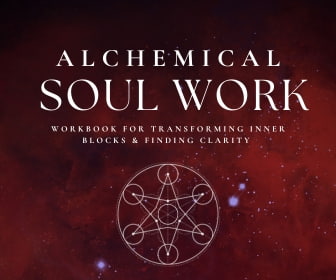
Feeling Lost?
The Alchemical Soul Work Workbook provides you with a clear path to clarity through the seven ancient stages of alchemy. With 50+ journaling prompts, you'll dissolve old patterns and forge a stronger connection with your Soul.
For instance, I love exploring my latest emotional insights, problems, and existential epiphanies in my journal.
Sometimes I will write for a minute, and at other times I will write for up to an hour: it all depends on how I am feeling.
So don’t be afraid to delve deeply into your mind and heart.
7. There’s no need for time restrictions
Try to avoid setting rigid time limits: it’s best to just allow your writing to flow.
Of course, in an ideal world, we’d all have plenty of time to journal, but that’s often not possible. So sometimes time restrictions are necessary (i.e., if you have a dozen to-do items scheduled for the day).
But if you have a bit of spare time, take as much time as you need! Enjoy the feeling of letting your inner self materialize on paper.
There’s no need to “set aside ten minutes a day” as many people recommend – I find that time restrictions tend to make journaling into a chore rather than an enjoyable self-growth activity.
But, as I said, if you have limited time available, or struggle to get into the habit of journaling, time restrictions can come in handy.
8. If you’re struggling, ask these questions …
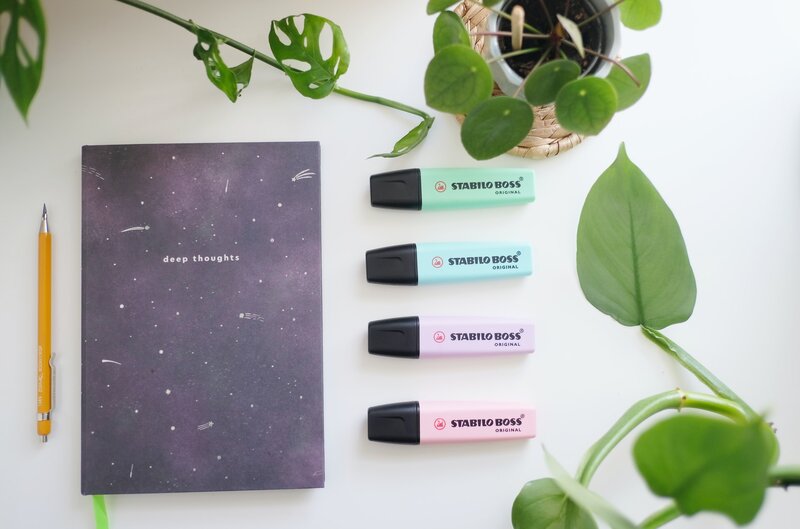
Sometimes we just don’t feel “in the flow” of writing, and sharing our thoughts doesn’t come naturally.
As an author and blogger, I get this frequently: it’s just part of the natural ebb and flow of life.
If you ever feel this way, here are some useful questions you can ask yourself which will stimulate thought:
- How am I feeling today?
- What is an issue I’m facing?
- What can I do about my most recent problem?
- What spiritual lesson is hidden in a difficult situation I’m facing?
- What thoughts are triggering my current feelings?
- Why do I keep having these thoughts?
- What was the message hidden in last night’s dream?
- What do I feel the need to change or improve about myself? (And why?)
- Am I being self-compassionate?
- Am I seeing the entire picture?
- How am I being dishonest with myself or others?
- In what ways can I be more mindful?
- What mistaken beliefs am I buying into right now?
- What is my plan of action to achieve my goals?
- What setbacks and obstacles am I facing?
These are only a few of the many potential questions you can ask yourself.
I personally prefer to just allow my thoughts and feelings to “vomit” out onto the page (it’s part of my shadow work practice) – but other people prefer a more structured approach.
So if you’re one of those structured people, you might like to keep a list of questions like the one above, close by. You can also check out my article listing 30+ free mindfulness journaling prompts.
9. Don’t be afraid to explore traumatic experiences
Write what disturbs you, what you fear, what you have not been willing to speak about. Be willing to be split open.
— Natalie Goldberg
Journaling is about growth, and growth often includes digesting past painful experiences.
At times, the experiences we went through in the past were disturbing, traumatic, or upsetting. Don’t be afraid to explore these experiences – they were a part of your story. But just be careful not to wallow in heavy emotions or trigger a trauma response. Be gentle and go slowly.
If at any point you feel overwhelmed, stop immediately. Also, if anything emerges during your journaling that you’re struggling to process, seek out a professional (like a psychotherapist or counselor) who can support you.
Sometimes, people benefit from pre-formatted or guided journals when it comes to processing past trauma. If you’d like more support in unpacking your painful emotions, you might find our Self-Love, Inner Child Work and Shadow Work Journals helpful.
10. Reflect on what you’ve written
Writing distills, crystallizes, and clarifies thought and helps break the whole into parts.
– Stephen Covey
After you’ve finished your journal entry, you might like to read back over what you’ve written with the intention of gaining clarity.
Reflection is what allows you to integrate your thoughts/feelings into self-awareness, understanding, action, and inner transformation.
As I mentioned previously, try not to nitpick your writing – spelling and all the rules of writing are irrelevant here. What matters is that you gain a big-picture perspective on how you think and feel.
If any thoughts, feelings, or realizations stand out to you, try highlighting them. You might like to create a table of contents at the end of your journal (if it is physical) and write down the page numbers that correspond to your mental breakthroughs.
If you’re using a digital diary, try to tag your entry with something like “epiphanies” or “important realizations” so that you can easily access these thoughts later.
Personally, setting time aside for reflection always plays a crucial role in my journaling process. It helps me to emotionally and mentally metabolize the most difficult experiences in my life.
11. Write for the joy of it!

Don’t journal out of duty or obligation, do it because you enjoy doing it!
Also, journaling isn’t for everyone, so if you don’t resonate with it, that’s okay. There’s probably something else out there that will help you.
But if you do enjoy and benefit from this practice, keep at it! Sometimes you’ll feel flat and uninspired, and that’s normal. We all go through these experiences. But you’ll quickly learn through journaling that everything within you ebbs and flows.
Through time, you’ll learn so much about yourself and your inner workings that journaling will become second nature to you. It will be just as valuable as drinking water or getting a good night’s sleep!
There are so many epiphanies, sparks of inspiration, and exciting discoveries to be revealed through journaling. Realize these amazing moments and hold them close to your heart: they’ll fuel your desire to keep journaling, not because it’s a “to-do” task, but because it’s a life-enriching passion!
I love how much inner clarity – and spiritual illumination – I have after journaling, and it is those feelings and discoveries that keep me going (and have done for 20+ years).
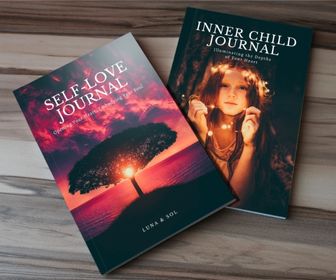
Inner Work Journal Bundle:
Ready to take your spiritual practice to new depths? Our highly-rated set of guided inner work journals leads you step-by-step through processing trauma, transmuting pain into power, and finding transformation through deep healing and self-illumination.
If you would like more ways to start journaling, see our 100+ journaling ideas article.
Takeaway
Start writing, no matter what. The water does not flow until the faucet is turned on.
– Louis L’Amour
As a self-awareness and self-discovery tool, journaling is second to none – it is the ultimate cornerstone habit we can establish each day.
When we explore our thoughts, we’re not living second-hand knowledge or seeing ourselves through the eyes of some other person – instead, we’re actively seeking to understand, through direct experience, who we are and what we value the most at a core level.
So I encourage you to pick up a pen and start journaling. Even just a couple of minutes a day can provide you with tremendous emotional relief and mental relaxation. Why? Journaling helps you to read your own mind and make sense of all the mental clutter and emotional turbulence you feel inside.
I hope journaling can benefit you just as much as it has benefitted me.
As a final note; if you enjoy writing down your thoughts, you might also like to read my article on automatic writing. Automatic writing is an intuitive journaling technique that many use to access their unconscious mind’s wisdom.
What is your favorite form of journaling? I’d love to hear below in the comments.
Whenever you feel the call, there are 2 ways I can help you:
1. The Soul Work Compass Course: Ready for deep transformation without the fluff? The Soul Work Compass provides a step-by-step path to finding your inner truth and life direction. Heal core wounds, clarify your values, and walk away with a concrete guide for living. Get started now!
2. The Inner Work Journal Bundle: Stop surface-level healing. Dive into the depths with 150+ journaling prompts designed to help you face your demons, heal childhood wounds, and embrace your shadow. Three sacred journals, lifetime access, print as many times as you need. Real transformation starts here.

 $3
$3
I think journaling is so beneficial and fun – I also like to add drawings, doodles and stickers throughout mine.
while writing journal, can we start we the past traumatic exp. and then to present. Or should it be like a diary
I have journaled for years since I was a young girl beginning with a diary. I actually have a few different ones for different subjects. I have had so many epiphanies on those pages through the years and solved so many problems anywhere from relationship issues to serious health issues. Thank you for this article I hope it encourages more people to give it a try.
What kind of journal would you recommend to start this?? I want to start but I’m having trouble finding an appropriate journal
Hey Cally, we mention within the article we’re big fans of ‘Baron Figs‘ just because they put thought into the designs, and have great quality material (acid free paper, etc.)
…keep all writings under lock and key. This advice must be taken by EVERY journalist. A dear price will be paid if it is ignored.
Yes, it’s VERY important that your journal is kept private under physical lock and key or on a password-protected notetaking system online (such as evernote). Thanks for highlighting this necessity ThisMissie!
I just got a diary as a gift from my 14-yr old. It’s difficult to write things down for me because i’m constantly afraid someone might read it.
I used to write numbers of diaries but since a) my father found it and read it and b) two ex-boyfriends found it and read it ánd accused me of stuff in it, the fun of writing down my thoughts and stuff really went down to 0.
Now I’ve started again this holiday. Even if it is only a few rules, it’s ok. And it really clears the head inside.
Those questions mentioned are brilliant by the way. Thank you!
Stephanie, why don’t you try and join an online site like Evernote (which is free)? Your account comes password protected so that no one can read your thoughts. By filtering your thoughts you’ll still get some kind of benefit, but not as much as writing freely and wildly. At first I was a pen-and-paper kind of gal, and it took a little while to get used to writing online, but now I prefer it. So do try it and let me know how you go.
I am a therapist and love to share it with my clients! Of course I’d be happy to put your name on it as credit any way you would like. thank you
Hey, Mark! Yes, certainly. I’d be more than happy to have you share this article with your clients. You’re welcome to credit me by linking to this page (if you’re sharing on your own website). Thank you for spreading this knowledge.
I love journalling, it’s my go-to when I need to just unload or pour out my thoughts at a given moment. Though, I don’t keep a daily record, journalling for me is an outlet, and I am also learned to be aware of not falling into the trap of keeping a journal as a venue to vent. How it worked for me is I’ve have several active journals that served specific purpose: I have a visual journal where I doodle or attach clippings and random things, a black journal for all heavy emotions, and a new one as a conversation journal titled “Letters to my Astral Bike Pards,” whenever I feel the need to talk to my twin flame (we are currently at stage 6). :)
I am a crafter, and one of the projects I want to pursue is to do a coptic stitch book binding workshop, sharing the joy of journalling.
Luna, I think you know this username already since I have commented on this site before. Now I need some help
I am 17 years old and am planning to escape my house from an abusive family, with a very abusive father and enabling mother who sacrificed her dream (Photography) for working in a 9 to 5 job. as I am writing this comment, so much fear fills me because of no guarantee that if I leave my house; I will not get enough money to have enough to feed myself. Any tips coming from you to help me cope with this crippling fear? It’ so much that I’d rather not leave the house but I know that if I stay, I will end up being as miserable as ever. I am being torn apart. Also, any tips to live beyond the house.
I’ve been journalling since I, too, was 10–so about 14 years now! But for most of that time, it was used for wallowing/blaming. Then I came around and realized I only felt worse when I did that, and I promised to only use it for positive purposes (which of course backfired eventually and didn’t solve any problems). I stopped journalling nearly as often, and only did it out of a sense of obligation.
After I got back on the self-improvement train (which I’d abandoned last year) and found you and Sol a few months ago, I got back into journalling, but this time, I let loose. I’d been paranoid before that someone would find my journals, so I wrote as if I had an audience, and it wasn’t authentic at all. I worried, at first, that journalling would have the same depressing effect as before, since I was working through my core wounds and so on. But I found that journalling without censorship liberated me from the negative emotions I had previously been repressing; and oftentimes, once I allowed myself to really feel them, they faded and disappeared.
I do a combination of notebooks and password-protected documents on the computer. The latter, I usually use to write notes to people I’m having a difficult time with, so I can do it with less fear of discovery. My favourite thing to do is to let it all out and write every awful thing I think about them, then flip the language around so it’s directed at me, in order to bring the Shadows to light, as most of the reason (if not the entire reason) I’m angry is due to projection.
But all around, it’s been so helpful to write what I’m REALLY feeling, then go back and read it over later, and learn from what I’m thinking/feeling. So if anyone still has doubts after this article, I really encourage you to give it a go!
I love that you’ve discovered the power of journalling, Meg! One of my favorite things to do is also to vent my emotions — but in a very constructive way, i.e. venting for the purpose of releasing the repressed energy within me instead of wallowing in self-pity. It’s such a nice feeling to let it all out and to know that you won’t be judged (and the only judgment comes from yourself). Journalling is so simple but it teaches us so much. Thank you for encouraging others to give it a go!
Aletheia,
Doesn’t it come naturally when we trace our emotions/reactions to their present cause and trace the present cause to an internal weakness rooted in the past? In the recapitulation to the past I light a clearer path to a time before I developed a trauma based personality and find a river of energy blocked by the trauma based personality in going back before the trauma. I face the trauma, open the river of energy and flow back to the future present with that more pure energy with me.
I noticed when I assimilate the energy and am ready another vivid recapitulation takes me farther back and there is an energy beyond time.